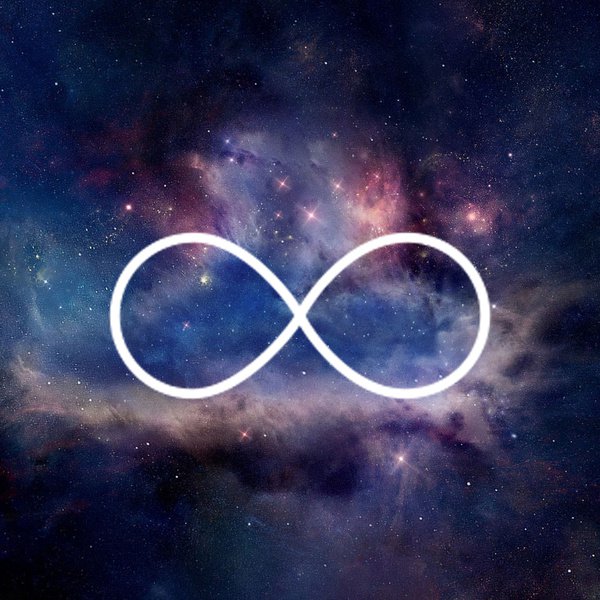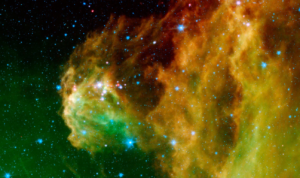In defense of the Kalam Cosmological Argument, apologists such as William Lane Craig, Frank Turek, and myself will argue for the second premise (i.e that the universe had a beginning to its existence) by arguing that an actually infinite number of things are impossible. If an actually infinite number of things are impossible, then a beginningless universe cannot exist since it would involve an actually infinite number of things existing, namely, past events. If you’ve read my book Inference To The One True God, you’ll know that the reason to believe an actually infinite number of things cannot exist is that if they could, various absurdities would result. For example, if I had an actually infinite number of CDs all with an infinite number of songs on them, if you listened to only one CD, you would hear the same number of songs as you would if you had listened to every CD in my collection.
The problem though is that this argument seems to help the Christian in one area, but hurts him in another, for if actual infinities cannot exist, in what way can we say that God is infinite? Isn’t God infinitely powerful, infinitely good, and knows an infinite number of truths? It would seem that we would either have to backpedal and say actual infinities really can exist after all, or we would have to say that God is not a Maximally Great Being. Frankly, the former is preferrable After all, we could still affirm the second premise of the Kalam argument by means of The Big Bang, the second law of thermodynamics, and the impossibility of traversing infinities. However, the arguments against actual infinities existing seem compelling and I’ve never encountered a good refutation of them.
God Is Infinite In A Qualitative Sense, Not A Quantitative Sense
To say “God is infinite” simply means to say that God is the greatest being conceivable. He has all properties that, if a person had them, would make that person a great person. God has all “great-making” properties and He has these properties to the greatest extent possible. To say “God is infinitely powerful” simply means to say there is nothing God is incapable of doing, except for that which is logically incoherent (e.g creating square circles, married bachelors, rocks too heavy for Him to lift). However, as C.S Lewis pointed out, there is no such “thing” as the logically impossible.1 Words like “Square Circle” and “Married Bachelor” are just meaningless combinations of words, so that God’s inability to make a square circle no more undermines His omnipotence than His inability to answer the question “Would a squeelobop pollycop look better on a triangular pookyluke or a round babblewack?” undermines His omniscience.
God’s omnipotence is not composed of an actually infinite number of things or units. It’s a qualitative infinite, not a quantitative one. Likewise, to say that God is omnipresent simply means that there is no place that exists where God is not. God’s infinite presence is likewise, qualitative and not quantitative. What about God’s eternality? This would only imply a quantitative infinite if one asserts that God is eternal in the sense of enduring through an actually infinite number of temporal moments. However, both the scientific2 and biblical evidence3 indicates that God was a timeless being sans the creation of the universe. Even if God entered into time at the moment He created the universe (as philosophers like William Lane Craig hold),4 it would still only mean that God has endured through 14 billion years, not an infinite number of moments. God’s “infinite goodness” is simply moral perfection. God is sinless. He has never, will never, and can never do anything morally wrong. He is as moral as anyone can be. Once again, we’re talking of a qualitative infinite instead of a quantitative one.
Neither God’s power, nor His presence, nor His goodness is things consisting of an infinite number of things, and therefore are immune to the objection.
What About His Omniscience?
The only attribute of God the objection would seem to be subject to is His omniscience. Here, we do seem to have a quantitative infinite. Doesn’t God’s knowledge consist of an infinite number of facts? For example, The Bible teaches that we will spend eternity with God in Heaven. In that case, God knows what we’ll be doing a trillion, trillion, trillion years from now and even a trillion, trillion, trillion years after that.
Would Open Theism Solve The Problem?
One solution would be to adopt Open Theism. Open Theism asserts that God knows everything about the past and present, but is just as ignorant of the future as we are. The problem though is that the biblical evidence overwhelmingly mitigates the idea that God is ignorant of the future (e.g Psalm 139:1-4). The very concept of prophecy presupposes that God has foreknowledge. If God didn’t have foreknowledge, God would essentially be saying “I don’t know the future, so let me tell you the future.” Secondly, it would still appear to be the case that an infinite number of true propositions would exist. There is no reason to think future tensed statements have no truth value (e.g “Tomorrow, the sun will rise”, “Tomorrow, Evan will eat leftovers”). If they do have the truth value, then God would know them in virtue of being an omniscient being.
An Infinite Number Of Propositions Are Still True Even If No One Knows Them
Actually, taking God out of the picture entirely doesn’t even resolve anything. For there would still be an actually infinite number of propositions about the future that is true, whether anyone knows them or not. I think the statement “Evan Minton will start a blog in 2012” was true back in 900 B.C. Indeed, this future tensed statement was a true future tensed statement 5 billion years ago. Now, it is a true past tense statement, but prior to 2012, it was a true future tensed statement.
Now, it would seem then, that an actually infinite number of true propositions about the future exist. The problem here is that while this seems to preserve God’s omniscience, it undermines one the four arguments for the second premise of The Kalam Cosmological Argument, as it would seem to show that one category of actual infinities can exist, namely true propositions about the future!
So How Do We Solve The Problem?
There is a debate in philosophical circles over whether abstract objects like numbers actually exist. There’s a variety of views on this, and I’m not entirely sure where I myself stand on it. At the moment, I’m on the fence between conceptualism (i.e they exist but are grounded in the mind of God) and nominalism. The latter says that abstract objects don’t exist, but are “useful fictions” to use philosopher William Lane Craig’s terminology5. Numbers don’t actually exist, they’re just useful fictitious devices for mathematically accounting for things. Perhaps Nominalism can solve the problem. If Nominalism is true, we can affirm that God can be all-knowing and actual infinities cannot exist without contradicting ourselves, for on nominalism, propositions are non-existent in the same way numbers are non-existent. Secondly, if God’s omniscience is a single, non-propositional, intuition, then the problem also vanishes.
The philosopher William Lane Craig explains it this way: “To get an objectionable, actually infinite number of things out of this, you have to think that God’s knowledge is broken up into propositional bits that actually exist. But such a view of God’s knowledge is not obligatory for the theist (and traditionally has been denied by theists). Suppose God’s knowledge of reality, including the future, is non-propositional in nature, and we finite cognizers represent what God knows non-propositionally by breaking it up into propositional bits. (For an analogy, think of your unbroken visual field, which someone could represent by breaking it up into pixels.) Then there is no actual infinity of ideas, thoughts, propositions, or what have you. So do not limit God by denying His complete foreknowledge of the future. There is no good reason to adopt such a view and it impugns God’s greatness.” 6
Dr. Craig is saying that God doesn’t divide truths into propositions like we do, so he doesn’t have infinite ideas in his mind. He just knows everything that is going to happen by a single intuition or apprehension. So, although God’s omniscience can be broken up into individual propositions, they no more need to actually exist as individual propositions than your field of vision needs to exist as individual pixels.
Conclusion
I don’t think there’s any contradiction in saying that God is infinite, and yet actual infinite number of things cannot exist.
———————————————————————————
Footnotes
1: see C.S Lewis, The Problem Of Pain, HarperOne, page
2: “The conclusion of this lecture is that the universe has not existed forever. Rather, the universe, and time itself, had a beginning in the Big Bang, about 15 billion years ago.” – Stephen Hawking, “The Beginning of Time”
3: 2 Timothy 1:9 and Titus 1:2 speak of time having a beginning.
4: William Lane Craig expresses and defends this view in his online article “God, Time, and Eternity”, –> https://www.reasonablefaith.org/writings/scholarly-writings/divine-eternity/god-time-and-eternity/
5: William Lane Craig, “God and Infinity”, July 8th 2013, https://www.reasonablefaith.org/writings/question-answer/god-and-infinity
6: ibid
Share this:
- Click to share on Facebook (Opens in new window) Facebook
- Click to share on X (Opens in new window) X
- Click to print (Opens in new window) Print
- Click to email a link to a friend (Opens in new window) Email
- Click to share on Pinterest (Opens in new window) Pinterest
- Click to share on Reddit (Opens in new window) Reddit
- Click to share on LinkedIn (Opens in new window) LinkedIn
- Click to share on Tumblr (Opens in new window) Tumblr
Discover more from Cerebral Faith
Subscribe to get the latest posts sent to your email.





[b]Creator Mind Theory.[/b]
The Creator Mind is Eternal.
All things experienced are within The Creator Mind.
There is no outside of The Creator Mind.
The Creator Mind is fundamentally material.
brings with it simplicity and solution.
[b]Creator Mind Theory Summary[/b]
Key Concepts:
Eternal and Material Creator Mind:
The Creator Mind is eternal and exists beyond time.
It is fundamentally material, not immaterial.
Vibrational Fields and Creation:
The universe and all its structures are manifestations of the Creator Mind’s vibrational frequencies.
Creation is an ongoing process where the Creator Mind modulates these frequencies to produce various forms and phenomena.
Integration with Science:
Galaxies and Cosmic Structures:
Observed cosmic structures, such as galaxies, can be seen as patterns created by the Creator Mind’s vibrational fields, similar to cymatic patterns formed by sound frequencies.
Quantum Mechanics and Field Theory:
Concepts like wave-particle duality and quantum fields support the idea that material reality is fundamentally vibrational.
Philosophical and Scientific Coherence:
The theory aligns with scientific discoveries by interpreting them through the lens of a unified, vibrational material reality.
It avoids the need for immateriality and ex nihilo creation, offering a coherent explanation for the nature of the universe.
By integrating these elements, the Creator Mind Theory provides a holistic framework that connects metaphysical ideas with empirical scientific observations, fostering a deeper understanding of the universe and our place within it.